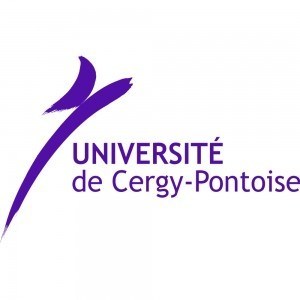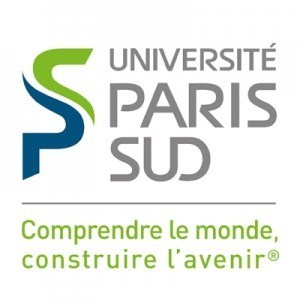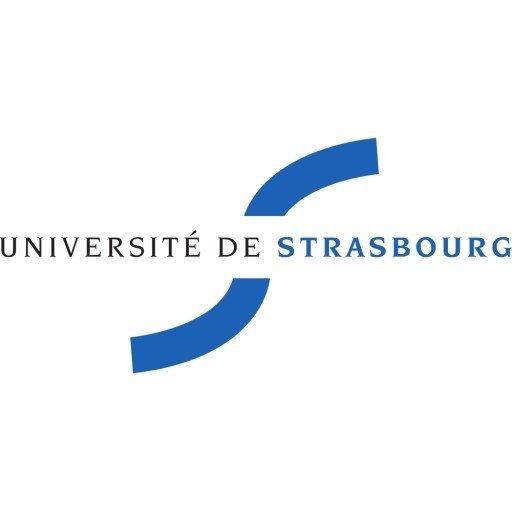Photos of university
Theoretical Physics and Applications at CY Cergy Paris University is a comprehensive master's program designed to provide students with a deep understanding of the fundamental principles governing the physical universe and their practical applications in modern technology and research. This program offers a versatile curriculum that combines rigorous theoretical coursework with hands-on practical experience, preparing graduates for careers in academia, research institutions, industry, and technology development. Students will explore core topics such as quantum mechanics, classical mechanics, statistical physics, electromagnetism, and mathematical methods essential for modeling and analyzing complex physical systems. The program emphasizes developing strong analytical and problem-solving skills, enabling students to approach challenging scientific questions with confidence and creativity.
In addition to theoretical foundations, the curriculum includes specialized modules on computational physics, condensed matter physics, and applied physics, reflecting the latest advancements and interdisciplinary nature of the field. Practical laboratory sessions, research projects, and internships are integral parts of the program, providing students with real-world experience and opportunities to collaborate with researchers and industry partners. The program is designed to foster critical thinking, innovative mindset, and effective communication skills, essential for successful professional development in science and technology sectors.
The faculty comprises experienced researchers and industry professionals who guide students through complex concepts and cutting-edge research topics. The program also offers opportunities for international exchanges and collaborative projects, enhancing students' global perspective and network. Graduates of this master's program will be well-equipped to pursue doctoral studies, engage in innovative research, or enter highly specialized roles in fields such as nanotechnology, quantum computing, renewable energy, and advanced materials. With a rigorous curriculum and a focus on practical applications, the Theoretical Physics and Applications program at CY Cergy Paris University prepares students to contribute meaningfully to scientific progress and technological innovation.
The Theoretical Physics and Applications (TPA) program at CY Cergy Paris University offers students an in-depth understanding of the fundamental principles governing the universe through advanced study of physics theories and their practical applications. This rigorous curriculum is designed to provide a solid foundation in classical and quantum mechanics, electromagnetism, statistical physics, and mathematical methods essential for modern physics research. Students will engage with both theoretical concepts and computational techniques, enabling them to analyze complex physical systems and develop innovative solutions to scientific problems.
Throughout the program, students explore a wide range of topics including condensed matter physics, particle physics, astrophysics, and nanophysics, with an emphasis on applying theoretical models to real-world situations. The curriculum integrates coursework, laboratory work, and research projects, fostering a comprehensive understanding of how physics principles are utilized in technological advancements and industry applications. Special attention is given to numerical simulations and the use of specialized software, preparing students for careers in research, industry, and academia.
The program also emphasizes the development of critical thinking, problem-solving skills, and scientific communication, equipping students to contribute effectively to scientific communities and multidisciplinary projects. Faculty members are active researchers in their respective fields, providing students with mentorship and opportunities to participate in cutting-edge research projects. Graduates of the TPA program are well-prepared for doctoral studies, research roles in scientific institutions, or technical positions in sectors such as aerospace, electronics, energy, and information technology.
Overall, the Theoretical Physics and Applications program at CY Cergy Paris University is designed to combine rigorous theoretical instruction with practical applications, fostering the next generation of physicists capable of advancing scientific knowledge and technological innovation.
The Theoretical Physics and Applications (TPA) program at CY Cergy Paris University is designed to provide students with a comprehensive understanding of fundamental physics principles and their practical applications. To be admitted to this program, prospective students are typically required to possess a strong background in mathematics and physics, including proficiency in calculus, linear algebra, classical mechanics, electromagnetism, and basic quantum mechanics. Applicants must submit academic transcripts demonstrating their previous coursework and grades related to these subjects.
International students are usually expected to provide proof of English proficiency through recognized tests such as TOEFL or IELTS, unless they have completed previous studies in English-speaking institutions. Additionally, some programs may require a motivation letter, where applicants explain their interest in theoretical physics and their career objectives, and letters of recommendation from previous teachers or professors who can attest to their academic abilities.
The entry requirements may also include an entrance examination or an interview, especially for candidates coming from other academic backgrounds or countries. These assessments aim to evaluate the applicant's analytical thinking, problem-solving skills, and motivation to pursue advanced studies in physics.
Once admitted, students are expected to fulfill specific coursework requirements, including core modules in classical mechanics, quantum physics, statistical physics, and mathematical methods for physicists. They may also choose elective courses focusing on computational physics, condensed matter, astrophysics, or applied physics, depending on their interests. The program emphasizes research skills, numeracy, and a deep understanding of both theoretical concepts and experimental techniques.
Student progress is typically monitored through coursework, project work, and examinations, fostering both individual and teamwork skills. To graduate, students must successfully complete all coursework, participate in seminars, and often undertake a thesis or capstone project related to theoretical physics or its applications. These requirements ensure that graduates are well-equipped with both theoretical expertise and practical skills necessary to pursue careers in research, academia, or industry.
Theoretical Physics and Applications (TPA) at CY Cergy Paris University offers a range of financing options to support students throughout their studies. Tuition fees for the program are competitive and designed to be accessible to a diverse student body, including international students. Full-time domestic students benefit from lower tuition rates compared to international students, with fees periodically reviewed and updated in accordance with university policies. To assist with living expenses, students are encouraged to explore scholarships, grants, and financial aid programs available through the university and external organizations. CY Cergy Paris University provides various scholarship opportunities, including merit-based scholarships awarded based on academic excellence, need-based grants, and mobility grants for students participating in international exchange programs. Additionally, students may be eligible for regional or national funding schemes, as well as European Union financial support programs dedicated to fostering scientific education and research. The university also offers information and guidance on student loans and work-study options to help students finance their education and associated costs. International students are advised to check specific visa requirements and associated financial proofing necessary for their stay. It is recommended that prospective and current students regularly consult the university’s financial aid office and official website for updated information on available funding opportunities, application procedures, deadlines, and eligibility criteria. By taking advantage of these extensive financial support systems, students can focus more fully on their academic and research pursuits in the field of theoretical physics and its applications, ensuring a more accessible and supportive educational experience.
Theoretical Physics and Applications (TPA) at CY Cergy Paris University offers a comprehensive curriculum designed to provide students with a deep understanding of fundamental physics concepts and their practical applications. The program emphasizes both theoretical foundations and experimental techniques, preparing graduates for careers in research, industry, and academia. Students will explore various fields, including quantum mechanics, electromagnetism, condensed matter physics, statistical mechanics, and mathematical physics, gaining a solid grounding in the core principles that underpin modern physics.
The program also emphasizes computational methods and numerical analysis, enabling students to simulate physical systems and analyze data effectively. In addition, courses in research methodology, scientific communication, and project management equip students with essential skills for collaborative and independent research activities. The curriculum is designed to be interdisciplinary, often integrating concepts from applied mathematics, computer science, and engineering to enhance problem-solving capabilities.
Students benefit from state-of-the-art laboratories and research facilities dedicated to experimental physics and applied sciences. Throughout their studies, they may participate in internships and collaborative projects with industry partners or research institutions, providing practical experience and professional networking opportunities. The degree aims to produce graduates who are well-prepared for doctoral studies or employment in sectors such as renewable energy, electronics, telecommunications, aerospace, and information technology.
CY Cergy Paris University fosters an innovative and dynamic academic environment, encouraging critical thinking, creativity, and scientific curiosity. The program often involves seminars, workshops, and conferences featuring leading scientists and researchers, exposing students to frontier topics and fostering an active scientific community. Graduates from the Theoretical Physics and Applications program are equipped not only with advanced scientific knowledge but also with adaptable skills relevant to a rapidly evolving technological landscape. The program's goal is to cultivate scientific expertise that can address contemporary challenges and contribute meaningfully to technological advancement and scientific discovery.







